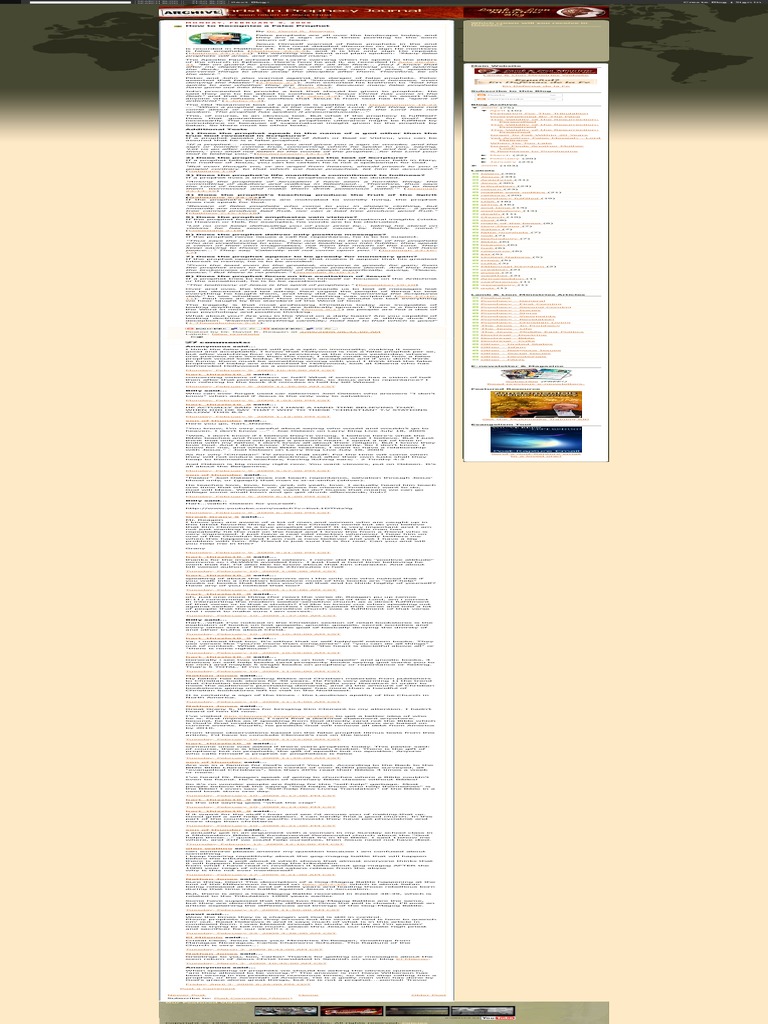In the contemporary religious landscape, the distinction between a false prophet and a true guide is both profound and necessary for spiritual seekers. Within the Bahá’í Faith, this inquiry emerges not only as a theological exploration but as a practical guide for individuals navigating their spiritual journeys. The teachings of Bahá’u’lláh, the founder of the Bahá’í Faith, offer unique insights into the nature of authenticity and the roles that prophets and manifestations of God play throughout history. This discourse will examine the attributes of genuine spiritual leaders, the criteria for assessing their authenticity, and the implications for adherents in their quest for truth.
Understanding the Concept of Prophethood
The concept of prophethood in the Bahá’í Faith diverges from conventional interpretations found in other religions. Prophets, or Manifestations of God, are regarded as divine educators sent to humanity at pivotal moments in history. Each reveals a portion of God’s eternal message, tailored to the needs and capacities of the populace they serve. To the Bahá’í community, recognition of these figures transcends mere acknowledgment; it embodies an active engagement with their teachings, thereby fostering a profound personal evolution.
Distinguishing True Guides from False Prophets
One of the most critical discernment processes involves distinguishing true spiritual guides from false prophets. Bahá’í teachings furnish followers with essential criteria to evaluate the authenticity of any claimed prophet. Key attributes include:
- Unity of Purpose: A true guide will promote the unity of mankind, indicating a genuine connection to the divine will. Fractious teachings or divisive rhetoric often signal a false prophet who seeks personal gain over collective advancement.
- Alignment with Previous Revelations: The continuity of divine message is paramount. Authentic spiritual leaders will align their messages with the core principles of prior prophets, revealing a consistent evolution of truth consistent with divine wisdom.
- Moral Exemplar: A true guide embodies integrity and virtue. Their life serves as an illustration of the principles they espouse, offering a model for followers to emulate.
- Aptitude for Leadership and Service: Genuine prophets display a profound capacity for compassion, leadership, and servanthood, directly addressing the temporal and spiritual needs of humanity.
The Role of Spiritual Discourse in Discernment
Engaging in thoughtful spiritual discourse is integral to discerning the veracity of prophetic claims. This exploration can take various forms, including study groups, interfaith dialogues, and personal reflection. By immersing oneself in Bahá’í writings and the teachings of renowned Love of God, seekers cultivate an authentic understanding of spiritual matters, which enhances their ability to critically evaluate prospective spiritual guides.
The Notion of Spiritual Authenticity
Spiritual authenticity is a multifaceted notion rooted in sincerity and the alignment of one’s beliefs with actions. True followers actively strive to internalize and practice the teachings of their faith, thereby helping to cultivate a sense of authenticity within themselves. This mirrors Bahá’u’lláh’s exhortation to engage in self-examination and consciousness. It is crucial for individuals to reflect on their motivations and understanding of spiritual authenticity to root out potential influences of false ideology.
Challenges in Identifying False Prophets
While the characteristics of true prophets may seem apparent, identifying false prophets can prove challenging. The rise of charismatic leaders who promise spiritual enlightenment or material gain often obscures the genuine path. Situational factors such as societal need, emotional vulnerability, or prevailing cultural circumstances can render seekers susceptible to deceptive influences. Thus, it becomes critical to cultivate a sense of spiritual vigilance, acquiring knowledge and wisdom that acts as a counterweight to alluring but misleading ideologies.
The Consequences of Following False Prophets
Adhering to false prophets can have dire consequences for spiritual seekers. It can lead to disillusionment, societal discord, and a fragmented understanding of spirituality. Moreover, the personal ramifications can extend to a deterioration of one’s moral compass and guidance, further entrenching them in misleading teachings. The Bahá’í Faith emphasizes the importance of maintaining strong ethical foundations, recognizing the profound impact of misguided spiritual alignment.
Communal Responsibility in Upholding Spiritual Integrity
Followers of the Bahá’í Faith must engage collectively to nurture a community that upholds spiritual integrity. This can be accomplished by fostering environments conducive to open dialogue, rigorous inquiry, and mutual support in spiritual journeys. Together, believers can cultivate discernment, uplifting one another in discerning truth from illusion, thereby fortifying the community against the insidious nature of false prophecies.
Conclusion: The Path of Discernment
Ultimately, the quest for spiritual authenticity within the context of Bahá’í teachings embodies a delicate balance between personal agency and communal wisdom. By equipping themselves with the tools to discern false prophets from true guides, adherents empower themselves in their journeys toward enlightenment. This discernment, matched with an unwavering commitment to unity, serves as a foundation for personal and communal spiritual flourishing, illuminating the path ahead in a world teeming with both guidance and deception.
